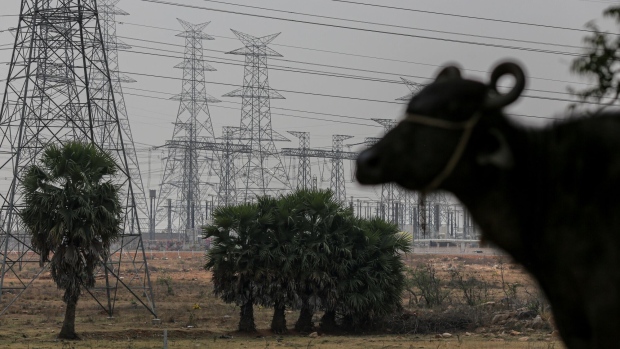Apr 24, 2024
Continuum Green Founders Eye $200 Million Loan for Investor Exit
, Bloomberg News

(Bloomberg) -- The founders of India’s renewable energy firm Continuum Green Energy Ltd. have hired Deutsche Bank AG to raise a $200 million loan to fund a stake purchase from its majority shareholder, according to people familiar with the matter.
Deutsche Bank has approached private credit funds for the loan at an indicative pricing of an interest rate in the low-teens, said the people who declined to be named for discussing private information. Terms are not finalized and may change.
It the deal materializes, it will help back private equity firm Morgan Stanley Infrastructure Partners LP’s partial exit of Continuum Green. Morgan Stanley Infrastructure held 92.31% of share capital in Continuum Green through a managed fund’s unit Clean Energy Investing Limited, according to a bond prospectus in August. Its plan to pare the stake comes as private equity firms globally have at times in the past year struggled to cash in on their investments due to wide valuation gaps and soaring funding costs.
Continuum Green, one of the largest sellers of renewable energy to commercial and industrial consumers in India, announced last week that Clean Energy signed a non-binding pact to sell part of its ownership in the firm to another shareholder, Continuum Energy Pte Ltd. Clean Energy will have a “substantial minority stake” after the transaction, the filing added.
Continuum Green’s co-founders - Arvind Bansal and Vikash Saraf - indirectly collectively owned 7.69% of the firm via the Singapore-registered entity Continuum Energy Pte., according to the bond prospectus.
Deutsche Bank and Morgan Stanley Infrastructure Partners declined to comment. Continuum Green Energy did not respond to Bloomberg’s request for comment. Bansal did not respond to emailed requests for comment.
Continuum Green emerged in the spotlight in August when it issued Asia’s first major high-yield dollar bond in four months at that time via a $435 million offering. Fitch Ratings assigned the company a B+ rating with a positive outlook, citing constraints from the firm’s high leverage that stems from large capital expenditures required for project construction. The credit risk assessor said its outlook reflects the expectation that the borrower’s debt burden will decline over time due to reduced spending and rising cash generation.
©2024 Bloomberg L.P.






